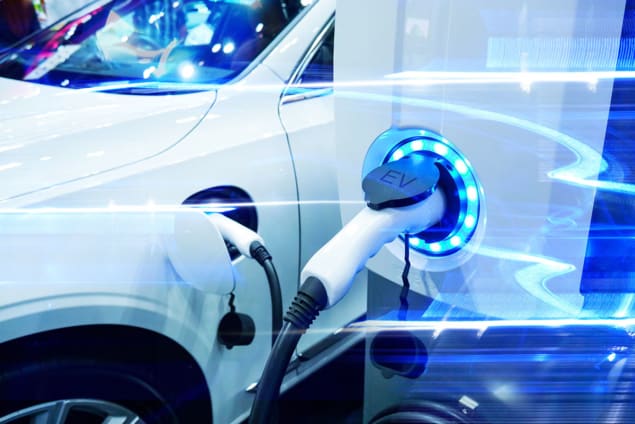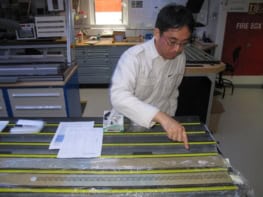
There has been a boom in electric vehicle (EV) take-up. Some see this as wonderful development in removing dirty fossil-fuelled cars from the roads, others, however, are not so sure. Not all of the criticisms that have emerged may be fair as the carbon debt associated with EVs or battery manufacture may be high, but, it is argued, it will be paid off fast if EVs use green power.
It is complicated doing the emission sums as it depends on what energy sources are used for charging as well as for EV and battery manufacture. But overall there are clear emission savings. That’s good news, although it’s not all good news: EVs wont reduce road congestion, the need for more roads and for more parking space.
The EV boom will also create a demand for more power (some say 20% more), which may create problems for balancing and even running the power grid, especially given that peak EV charging times coincide with peak-heating demand in winter. There are other mobility options too, including improved public transport with trains, buses and trams, that are powered with green electricity or hydrogen. This might be seen as more socially and environmentally beneficial together with the overall need to reduce demand for travelling.
While EVs may not be the best bet, they do have a role to play and with longer-range versions now emerging, expansion of their use seems inevitable. A recent report by the UK Energy Research Centre suggested that as part of a wider programme of technical fixes and demand reduction in all transport sectors (including aviation), EVs could help reduce UK transport emissions by around 25% by 2050. This percentage would rise to 50% if lifestyle changes were also made.
Giving back to the grid
The spread of EVs may also open up opportunities to provide storage support for renewables via the so-called “vehicle-to-grid” (V2G) option. In this case, EV’s batteries could be used to balance the grid and its use of variable renewables. EVs will be charged from the mains supply at home or elsewhere, and at times their batteries could provide a source of power when there were shortages on the grid.
There could be significant advantages from using vehicle-to-grid and associated home-based smart power and storage systems
Some see V2G as a way to convert cars from being an environmental problem into part of the “clean–energy” solution that would enable variable renewables to spread. V2G would also enable EV owners to earn some income from “renting out” their batteries. Obviously, V2G is only viable where there are grids and in many parts of the world that is not the case. Where there are grids, however, V2Gs must overcome potential real or perceived inconvenience issues. For example, in the worst case, car owners would not be happy to have their EV batteries drained flat when there was a power shortfall on the grid.
However, if “drain limit” protections are built in, then the potential battery capacity from millions of EVs linked to the grid could act as vast distributed grid stabilizing system. Such a system could also have smart–charging controls, so that EV charging is only done when there was a surplus on the grid and not at times when home heating demand was high. One way to achieve that would be to charge higher prices for input power at peak demand times. Incentives would presumably also be offered to EV owners for permitting V2G power withdrawals.
There are other timing limits to what EVs and V2G can offer. When EVs return home, typically in the early evening, their batteries would be mostly discharged, so they would be no use for meeting peak–power demand. Although EV batteries could be charged directly using domestic photovoltaic solar, that would only be possible in the daytime when cars are most likely to be away from the home.
However, from a national-energy-system viewpoint, there could be significant advantages from using V2G and associated home-based smart power and storage systems. A report from Imperial College London and OVO Energy – a Bristol-based energy-supply company – found that the use of residential flexible technologies such as smart EV charging and V2G as well as smart electric heating and in-home battery storage, could save the UK energy system £6.9bn. That would be equivalent to a £256 saving on average household energy bills each year. The scenario relied on the uptake of 25 million EVs and 21 million electric-heating units in the UK by 2040, which the report says was “ambitious but achievable”.
Safety first
Whether autonomous self-driving car takes off remains to be seen. Safety is a key issue, with some high–profile and fatal accidents occurring with early versions. Not everyone is convinced that driverless car can negotiate the real complex chaotic world. However, it is claimed that self-driving EVs will reduce congestion since they can use road space more efficiently, while electronically hailed taxi variants can avoid the need for parking at destinations.
Some say that user mileage may increase with self–drive cars and that we may even see autonomous cars left driving around instead of seeking a parking space. All of this adding to the air pollution problems that you get from the micro-particle dust released by rubber–wheeled vehicles on roads. As EVs are often heavier than conventional cars (with heavy batteries instead of petrol tanks), they may even increase it. It is also worth noting that there may be materials limits to the current push to EVs, including the availability of key rare-earth elements and lithium for batteries. Nevertheless, EV and low–carbon vehicle technology is developing rapidly with other new battery ideas emerging and new fuels being tested.
The bottom line, however, is whether battery-powered cars are the best use of green power? And perhaps more radical than that is whether it is time to start moving away from cars altogether?




